Is Turmeric Good for Your Heart? Here’s What the Science Shows
In a hurry? Click here to read the Article Summary...
For more than 2,000 years, turmeric’s rhizome (an underground stem that sends out roots and shoots) has been crushed into powder and used in Asian cookery, cosmetics, and fabric dyeing [1]. Turmeric also has a long history of use in the traditional medicinal systems of both China and India, where it is used for treating a variety of health problems. But is turmeric good for your heart? Read on to discover what science shows about turmeric and heart health.
5 Ways Turmeric Is Commonly Used as Medicine in India
As mentioned above, the cooking spice turmeric has long been revered in both traditional Indian and Chinese medicine for helping to heal a wide range of health issues.
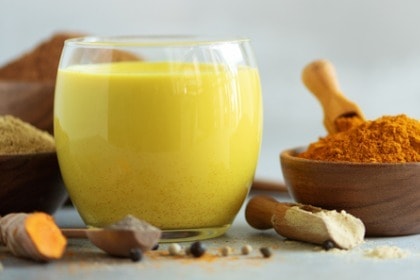
For example, to this day in India, powdered turmeric is often consumed with boiled milk to treat cough and other respiratory ailments, as well as many digestive disorders. Meanwhile, turmeric paste is used to:
- treat eye infections
- dress wounds
- treat skin conditions including insect bites, burns, acne, and other skin diseases
1000+ Studies into the Benefits of Curcumin (Including Heart Health)
Turmeric’s longstanding popularity in traditional medicine has more recently garnered immense scientific interest.
Over the past decade or so, more than a thousand scientific and clinical studies have shown that the yellow pigment polyphenol curcumin – the predominant bioactive compound in turmeric – has powerful antioxidant, anti-inflammatory, and blood lipid management properties.
According to just one study, published in the journal Molecules in 2015,
“…chronic inflammation, oxidative stress, and most chronic diseases are closely linked, and the antioxidant properties of curcumin can play a key role in the prevention and treatment of chronic inflammation diseases” [2].
Since, in this article, we’re concentrating on heart health, it’s important to note that scientific and clinical research indicates that curcumin protects the cardiovascular system in multiple ways because of its potent bioactive properties [3].
How Safe Is Curcumin?

Curcumin (which is responsible for the yellow color in turmeric) is remarkably non-toxic and shows great potential as a therapeutic agent. In fact, curcumin and other related curcuminoids have been approved by the U.S. Food and Drug Administration (FDA) as “Generally Recognized As Safe” (GRAS) [4].
Curcumin has also shown good tolerability and safety profiles in clinical trials, even at doses between 4000-8000 mg/day [5] and of doses up to 12,000 mg/day of 95% concentration of the related curcuminoid compounds curcumin, bisdemethoxycurcumin, and demethoxycurcumin [6].
Turmeric and Cholesterol: What Effect Does Curcumin Have on Blood Lipids?
Cardiovascular diseases (CVD) are complex disorders that affect blood vessels in the heart and brain. The risk for developing CVD increases with:
- overweight and obesity
- high blood pressure (BP)
- elevated blood sugar and blood lipid levels
Atherosclerosis is one of the most common causes of strokes and heart attacks. Oxidation of low-density lipoprotein (LDL) cholesterol is believed to play a critical role in the formation of so-called “atherosclerotic lesions” on the inner wall of arteries [7-9].
Promisingly, in laboratory animal studies, turmeric extract has been shown to lower levels of low-density lipoprotein (LDL) and also prevent its oxidation. Turmeric was also seen to lower total cholesterol levels while elevating levels of high-density lipoprotein (HDL) – both of which are known to further contribute to lowering heart disease risk.
How Does Turmeric Affect Lipid Levels in Humans?
In 2019, a meta-analysis and systematic review was carried out on multiple randomized controlled trials examining the actions of turmeric and curcuminoids on blood triglycerides, total cholesterol, LDL-cholesterol, and HDL-cholesterol in adults with metabolic diseases [10].
Note: A meta-analysis is a statistical analysis that combines the results of multiple scientific studies addressing the same question, with each individual study expected to have some degree of error and variation.
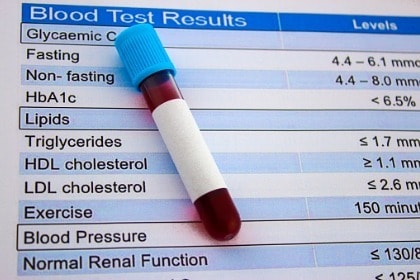
The results of this meta-analysis show that turmeric and curcuminoids significantly LOWERED total cholesterol, triglycerides, and LDL-cholesterol levels, while simultaneously elevating HDL-cholesterol levels. (HDL is what’s often referred to as the “good” cholesterol.)
In other words, turmeric and curcuminoids appear to lower the risk of heart disease in adults with metabolic diseases.
Turmeric’s Effect on Fasting Blood Glucose Levels in Patients With Metabolic Syndrome
Another meta-analysis and systematic review of seven (7) clinical trials, also published in 2019, showed similar results – turmeric improves lipid profiles, along with lowering fasting blood glucose levels in patients with metabolic syndrome [11].
According to the American Heart, Lung and Blood Institute (NHLBI) metabolic syndrome is defined as a “group of risk factors that raises the risk for heart disease and other health problems, such as diabetes and stroke [12].” These risk factors include:
- high blood pressure (BP)
- high blood sugar
- excess fat around the waist
- abnormal blood lipid levels
Interestingly, curcumin has been shown to help manage many of the risk factors for metabolic syndrome [13].

Turmeric and curcumin’s effects on blood lipids were similar to those seen in individual studies. For instance, in a randomized, double-blind controlled trial, 12 weeks of curcumin supplementation was seen to increase HDL-cholesterol levels, while significantly lowering LDL-cholesterol and triglyceride levels in patients with metabolic syndrome [14].
Similarly, in another randomized, controlled trial, bioavailability-enhanced curcuminoids were given to patients diagnosed with metabolic syndrome for 8 weeks [15].
In these patients, curcuminoids were found to be more effective than placebo in reducing levels of total cholesterol, LDL-cholesterol, non-HDL-cholesterol, triglycerides, while once again elevating HDL-cholesterol.
In yet another randomized, double-blind controlled trial, the effects of curcumin administration were assessed in 75 patients with acute coronary syndrome (ACS) [16].
ACS is a term used to describe a range of conditions associated with sudden, reduced blood flow to the heart, such as a heart attack. In these patients, turmeric was again seen to lower LDL-cholesterol and elevate HDL-cholesterol levels.
Turmeric has also been shown to lower total cholesterol and LDL-cholesterol in clinical trials with healthy subjects while raising HDL-cholesterol levels [17,18].
Turmeric’s Anti-Inflammatory Activity
Inflammation is the body’s natural response to infections and injuries – a protective immune response that removes damaged and dying cells and paves the way to begin the process of repair and healing.
Although beneficial for our body in the short term, uncontrolled high levels of inflammation are now believed to play a major role in almost every chronic disease including:
- diabetes
- heart disease
- Alzheimer’s disease
- cancer

Inflammatory mechanisms have been shown to trigger aggregation or clumping together of platelets (tiny blood cells that help to form clots and stop bleeding) and blood clot formation, which prevent normal blood flow and can contribute to heart attacks and strokes. Promisingly, curcumin has been shown to interfere with platelet aggregation [19].
Chronic high inflammation has also been linked to the development of atherosclerosis, an early step in the formation of heart disease [20]. Here too, curcumin appears to be a promising candidate for the treatment of:
- thromboembolism (obstruction of a blood vessel by a clot dislodged from another site in the bloodstream), and
- atherothrombosis (disruption of the atherosclerotic lesion) [21].
Atherosclerosis associated with high levels of inflammation is commonly seen in diabetes patients. A randomized, double-blinded, and placebo-controlled clinical trial in which curcumin was given for 6 months to patients with type 2 diabetes was seen to lead to a lower risk of developing atherosclerosis and improved metabolic profiles [22].
Turmeric’s Use in Ayurveda for Inflammation & Blood Sugar Levels
As mentioned early on in this article, curcumin has a long history of use in the centuries-old traditional Indian Ayurvedic medicine. According to this ancient healing system, turmeric helps to keep inflammation at safe levels, while also keeping blood sugar within safe levels [23].

This dovetails with modern scientific research which shows that curcumin fights inflammation by interacting with multiple biological processes that play important roles in the inflammatory process [24-28].
In a 2019 randomized, placebo-controlled clinical trial reported in the journal Phytotherapy Research, curcumin supplementation was seen to significantly lower markers of inflammation in overweight and obese adolescent girls [29].
Early results from this and other clinical trials indicate that curcumin is very safe, with no toxicity observed even at very high doses [30].
Turmeric’s Impressive Antioxidant Properties
Free radicals are highly reactive chemical entities that are formed daily in our bodies because of normal, ongoing metabolic activity.
Unfortunately, when an excess of free radicals builds up, they can damage cellular structures and contribute to the development of deadly diseases such as heart disease, Alzheimer’s disease, and cancer.
Turmeric’s natural antioxidants, the curcuminoids, have been shown to neutralize harmful free radicals such as reactive oxygen and nitrogen species, minimizing the damage they cause [31,32].
Specifically, curcumin has been shown to improve markers of oxidative stress. Oxidative stress is the result of an imbalance between free radicals known as reactive oxygen species (ROS) and the antioxidant systems necessary to neutralize or detoxify them [33].
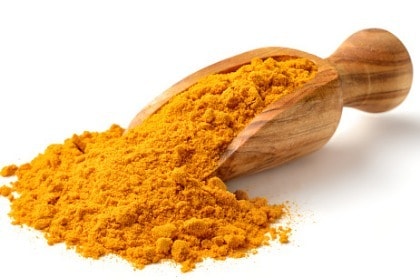
Like vitamin E, the fat-soluble curcumin is also an efficient scavenger of a type of free radicals known as hydroperoxyl [34]. Turmeric has also been shown to enhance the activities of natural antioxidant enzyme systems in the body, such as glutathione, superoxide dismutase (SOD), and others [35-37].
Thanks to its natural antioxidant capabilities and ability to detoxify harmful free radicals, turmeric, and especially its curcuminoid compounds, likely reduce the risk of developing heart disease, Alzheimer’s disease, and perhaps even some forms of cancer.
5 Other Ways Turmeric is Good for Your Heart
#1. Chronic Heart Failure (CHF)
In laboratory animal studies, curcumin was seen to improve multiple molecular biomarkers of CHF [38].
#2. Diabetic Cardiomyopathy
Myopathy is a disease in which muscle fibers don’t function properly, leading to muscular weakness. In laboratory animal studies, curcumin was seen to protect against heart muscle weakness caused by diabetic cardiomyopathy [39].
#3. Cardiac Fibrosis (CF)
CF is a condition in which heart muscles become scarred and stiff because of tissue damage, disrupting electrical conduction, and eventually leading to heart failure. Cumulative evidence indicates that curcumin improves heart function in people with cardiac fibrosis [40].
#4. Cardiac Tissue Engineering (CTE)
Tissue-engineered constructs containing curcumin have been developed for managing soft tissue injuries. Similarly, some experts believe curcumin may soon be used in CTE [41].
#5. Endothelial Function
The endothelium is a single layer of cells lining the inner surface of blood vessels and lymphatic vessels in the body. Impaired endothelial function is believed to play a key role in the development of atherosclerosis, arterial hypertension, heart failure, Alzheimer’s disease, and cancer cell growth. Promisingly, curcumin appears to improve endothelial function [42].
Is Turmeric Good for Your Heart?
Getting back to our original question… “Is Turmeric Good for Your Heart?” Scientific research certainly makes a strong argument for “YES!”
But know that every substance has the potential for both positive and negative effects and that everybody (and every body) reacts differently. Be sure to check with your doctor before taking new supplements – especially if you have any pre-existing health conditions. If given the go-ahead, we recommend Turmeric 3D™ from Organixx.
With its unique fermenting processes, Turmeric 3D is the most advanced, bioavailable, and by far the most beneficial turmeric supplement available anywhere.
In addition to turmeric, it contains vitamin D3 and ginger, both potent anti-inflammatories, along with KSM-66 Ashwagandha® for reduced joint pain and to help the body recover from stress.
USDA Certified Organic Turmeric 3D from Organixx is a synergistic blend of organic and patented ingredients, including naturally fermented FermaPro® Organic Turmeric Root, along with Organic KSM-66® Ashwagandha, Organic Ginger Root, and Organic Black Pepper Fruit Extract (10%) Piperine. Each ingredient is clinically studied to support inflammation, stress, immune health, and metabolic balance, and optimized with a bioavailable delivery system that boosts absorption by 2,000%.*
*These statements have not been evaluated by the Food and Drug Administration. This product is not intended to diagnose, treat, cure or prevent any disease.
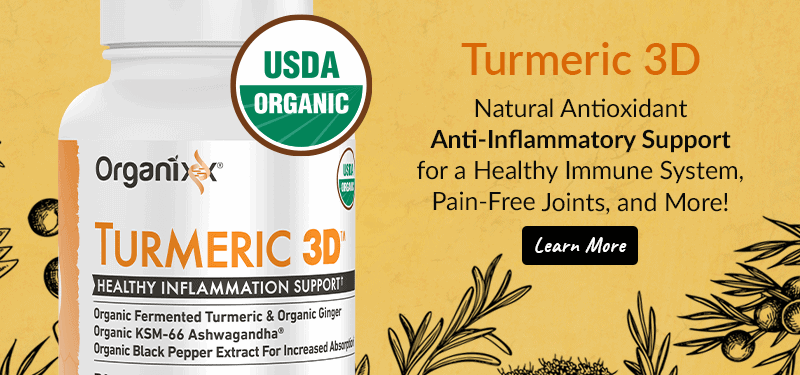
 Sources:
Sources:
Article Summary
Turmeric has a long history of use in the traditional medicinal systems of both China and India, where it is used for treating a variety of health problems.
Over the past decade, more than a thousand scientific and clinical studies have shown curcumin – the predominant bioactive compound in turmeric – has powerful antioxidant, anti-inflammatory, and blood lipid management properties.
Curcumin has been approved by the U.S. Food and Drug Administration (FDA) as “Generally Recognized As Safe” (GRAS). It has also shown good tolerability and safety profiles in clinical trials.
A 2019 meta-analysis showed that turmeric and curcuminoids significantly LOWERED total cholesterol, triglycerides, and LDL-cholesterol levels, while simultaneously elevating HDL-cholesterol levels (the “good” cholesterol) in humans.
Another meta-analysis and systematic review of 7 clinical trials showed that turmeric improves lipid profiles, along with lowering fasting blood glucose levels in patients with metabolic syndrome.
Research also demonstrates that curcumin fights inflammation by interacting with multiple biological processes that play important roles in the inflammatory process.
Thanks to its natural antioxidant capabilities and ability to detoxify harmful free radicals, turmeric (and especially curcumin), likely reduce the risk of developing heart disease, Alzheimer’s disease, and perhaps even some forms of cancer.
If you and your healthcare provider determine a turmeric supplement would be beneficial, consider Turmeric 3D™ by Organixx. With its unique fermenting processes, Turmeric 3D is the most advanced, bioavailable, and by far the most beneficial turmeric supplement available anywhere.


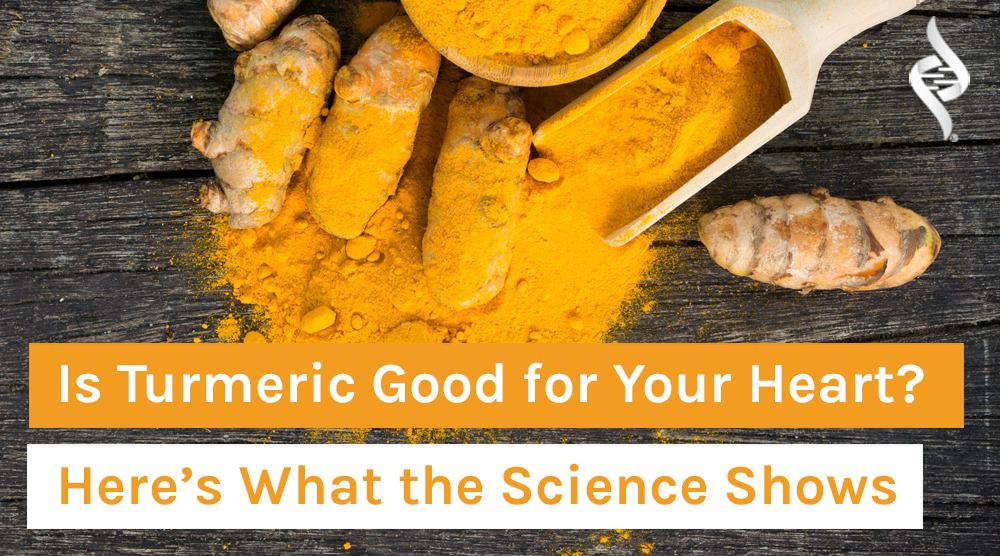
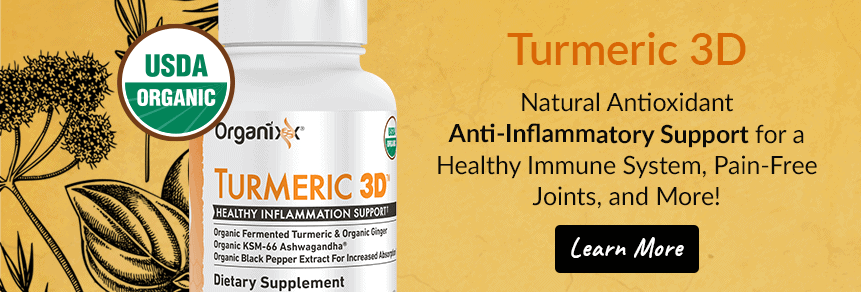

Marta Mahlke, Would you please state the reason you say it could cause bleeding in the digestive tract. Thanks
Hi Marta, I’ve read that it’s black pepper that’s often added to other Turmeric supplements that can cause the problem you mentioned & irritate the gut lining. Organixx Turmeric doesn’t add Black Pepper because it is triple fermented instead So as far as I know, this isn’t an issue. I take it regularly & really love it so I’d appreciate if you could update your comment with whether it was a different brand that you had this problem with please, many thanks
In response to John P’s comment about Turmeric and high oxalates, I agree & I’ve also had problems with other turmeric supplements which gave intense pain in my feet with just 1 capsule but don’t let this put you off trying the Organixx Turmeric 3D because it’s in a different league. 3D is such a pure clean product that I have had no problems taking 2 capsules a day for over a year. I struggle to tolerate much but all the Organixx products have suited me so well maybe because it’s triple fermented. (The only product I haven’t been able to tolerate is the multivitamax.) I have the 7Mushroom twice daily too and a really bad toe wound that has progressively gotten worse over a decade suddenly started massively improving which really impressed me. (The only other thing I was taking is Pectasol). I’ve taken the Organixx Enzyme17 and organigreens for about 6 months too with no problems. I love Organixx and I’m so grateful that shipment to the UK is so cheap & easy (as long as you keep your order below £135 to avoid paying customs & taxes)
hard to believe that, well i have already buy one and i am waiting for it. one more thing, we don't believe in science, we study with the science, because they and thing more powerful in difference country.
i my name ricky and i have already purchase a powerful weapon call turmeric 3d i have a problem my joint elbow knee joint but nothing works so please could you sent my order soon as possible thank you so much cheers ricky
Hi Ricky! I am so happy to hear that you decided to give the product a try. I am so sorry to hear about the health challenges you have been facing. Sending a prayer your way. Thank you for your support! I would love to hear of your results after some time. :) We usually ship orders within 48 hours of order placement. We also send tracking information so that you can track your order. If you have specific questions about your order you may reach out to our customer success department at 877-750-6455 or you may use this form to send them an email https://support.organixx.com/submit_ticket Have a happy and healthy day!